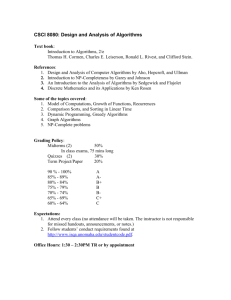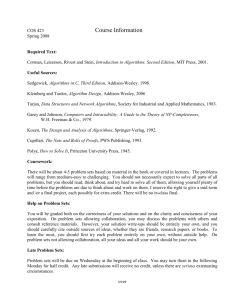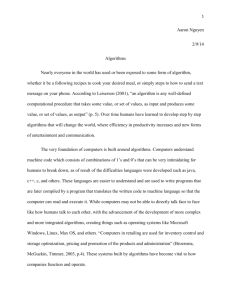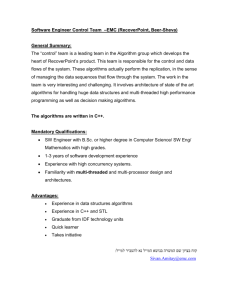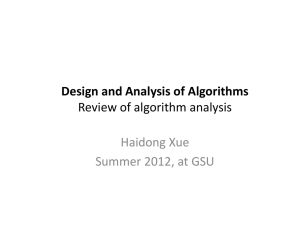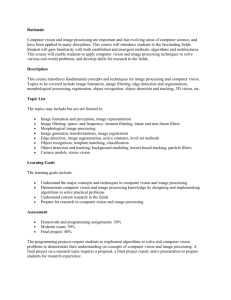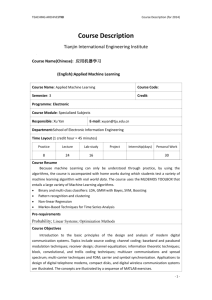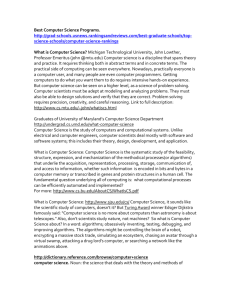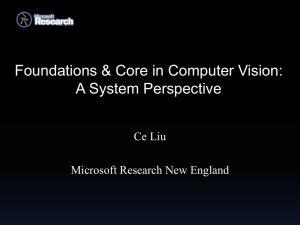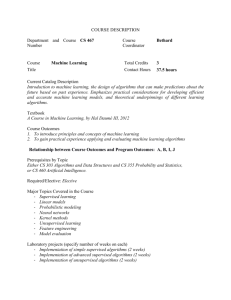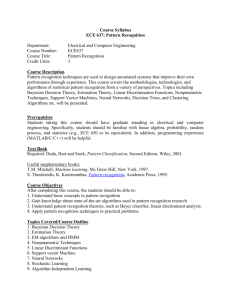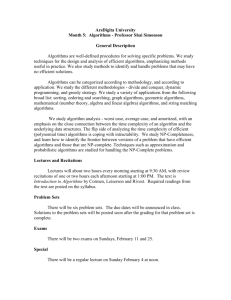PLSD210_notes - Department of Computer Science
advertisement
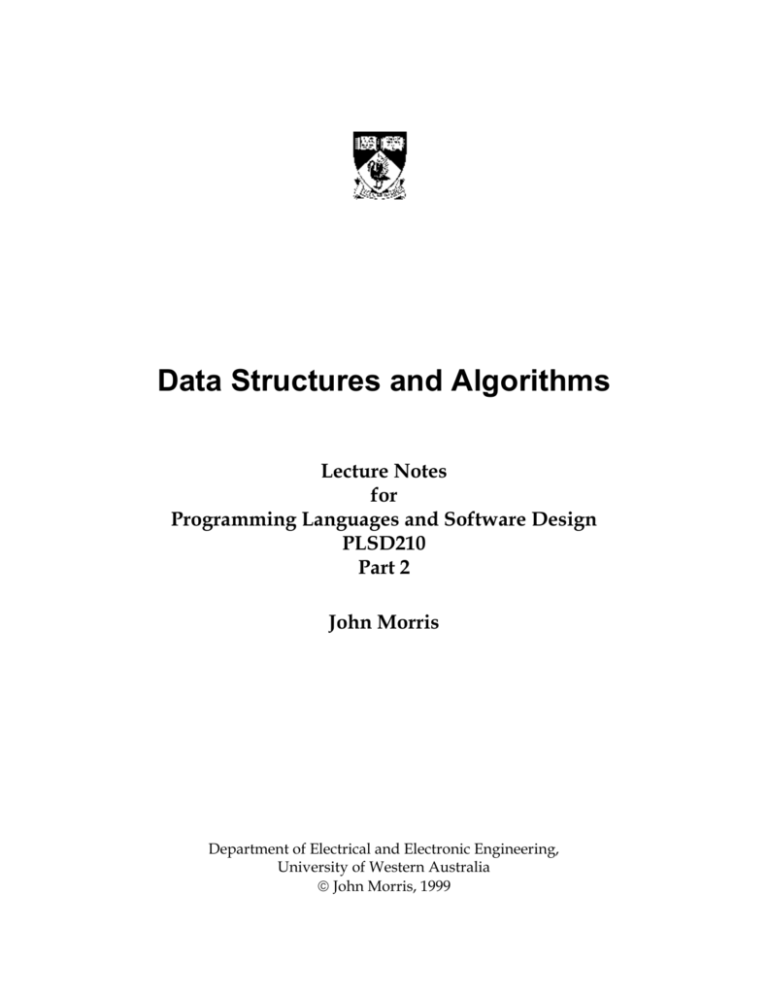
Data Structures and Algorithms Lecture Notes for Programming Languages and Software Design PLSD210 Part 2 John Morris Department of Electrical and Electronic Engineering, University of Western Australia John Morris, 1999 Preface These notes are the basis for the data structures and algorithms component of the PLSD210 course. All of these notes are available on the Web1: you can access them by following links from the Department of Electrical and Electronic Engineering’s home page: http://swww.ee.uwa.edu.au/~plsd210. These notes outline the material to be covered in the course, but they are no substitute for a good text – particularly one on algorithms. One of the factors that distinguishes the software engineer from the hacker is a good understanding of computer algorithms. Unfortunately, research over the past few decades has produced good solutions to more important problems than it is reasonable for anyone to be expected to remember. Thus professional software engineers keep a good reference on algorithms handy. There are many suitable texts: Cormen, Leiserson and Rivest is comprehensive (if weighty at 1000+ pages!) and is suggested as a useful long term reference that will also suffice to get you through this course. Because printed pages don’t have the hypertext capability of a Web browser, program code which would normally be brought up in a window next to the text has been collected together in one appendix at the end of these notes. As with all good courses, this one is being continually refined: the lecture notes are thus in a state of constant flux. It would be advisable to browse the Web pages for changes from time to time. The Web pages also contain animations of some of the algorithms which may give you additional insight into the way the problem is solved. Underlined entries in these notes are hypertext links. The ones at the bottom of each page are just links to the next section and back to the table of contents. Links in the body of the text are sometimes cross-references to other parts of the notes and sometimes links to other pages which may be found on the Web: you can check these out quickly using any Web browser – there are direct links from the Table of Contents page to all the individual pages. Program fragment pages have not been included in these notes: you can view them using a Web browser while reading these notes or download them to view or print using your own tools. If you discover errors or would like to suggest improvements, your colleagues in future years will appreciate your contributions! John Morris Perth, August, 1999 The strange positions of page breaks usually result from the fact that these notes were designed as Web pages rather than printed notes! 1
